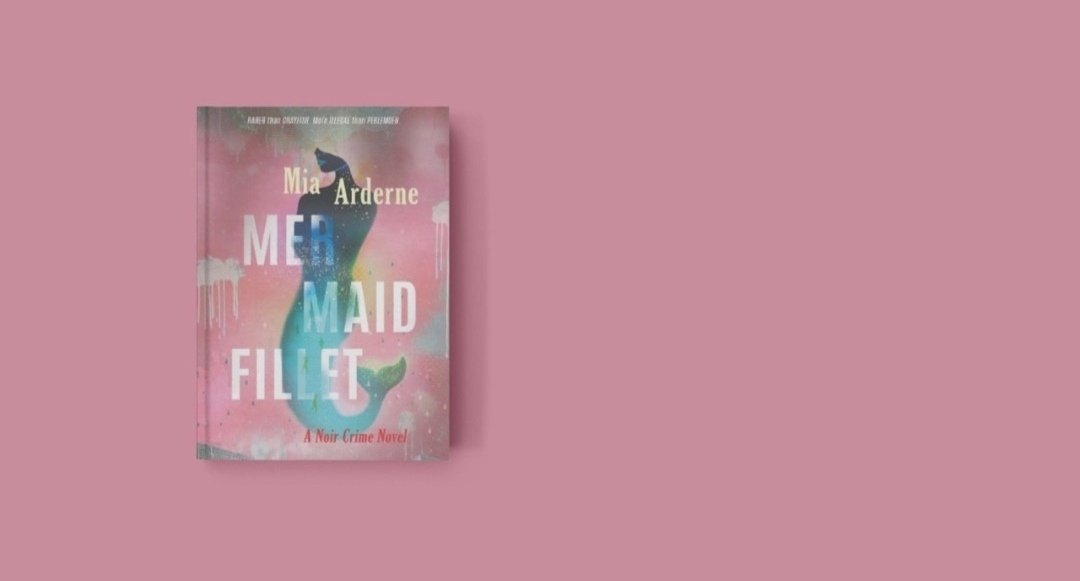”
Written byKerryn Hopkinson
Politics, Art and staying Wys with Mia Arderne.
Recently I got the privilege to sit down with Mia Arderne and talk about creativity, art and how the only thing you need to write a novel is the insanity to do it. She is best known for her noir crime novel Mermaid Fillet – a brutal, gritty and honest book that is being taught at UCT. And Mia Arderne is similar to her novel – witty, direct, the kind of person to order a latte and a savannah dry at the same time. I was able to delve deep into her creative process and the different parts that make up the life of a creative. And I would trust Mia, she knows what she’s talking about – even if she doesn’t always think so. She is a true creative in every sense of the word. If you explore her past work you’ll find journalism, canvas and online art, pole dancing and of course, her writing.
That said, she’s not one to sugarcoat the hardships that come from being a creative. “Being a creative is fucking difficult,” she says, explaining the persistent rejection, the emotional taxation, the struggles of imposter syndrome, and the fact that good reviews don’t always keep the lights on. “It takes a lot out of you emotionally and psychologically cause you are putting parts of yourself into what you write.” However, Mia understands better than anyone that being a creative isn’t always a choice. Some people are just born with the desire to make art, in whichever form. She describes it as a compulsion. She doesn’t enjoy writing, but it’s something she has to do. Something most creatives can relate to. And despite the struggles, it is something she will continue to do.
“My advice for imposter syndrome? Just act like you belong there even if you feel like you don’t. Put on a fucking persona and walk onto stage.”
Writing doesn’t always come naturally but the topics she includes in her work often do. Mia understands the importance of representing all aspects of life in her work. For her, it is a natural thing. Including difficult subject matter is something she doesn’t actively think about. There is no way around it. “If you’re not including the difficult subjects, you’re being dishonest. And if you’re not including mental illness, gender-based violence, trauma, and queerness, then you’re being dishonest to yourself and to the world. There’s no reason to include it in art but social and personal honesty because it’s life. If you’re not including that, either you’re living in a silo where you’re not seeing the world, or you’re making a deliberate decision not to give a fuck about what’s happening around you. So including it is the only thing to do. It was there in front of me so I wrote about it.”
South Africans understand that for one to represent what is in front of them, that means that the art produced will often have harsh themes. The history of trauma and oppression within South Africa’s history often results in the art reflecting that, “Cause that”s what we know. It’s in our bones, in our blood, in our marrow. It’s there, so it comes out without us trying too hard. Because it’s so deeply embedded in us, it’s gonna come out.” Those subjects are unavoidable and also so important to bring attention to. She says the phrase, “Politics is personal. Personal is politics.” They are interchangeable and connected. And she is right, politics and social problems are a part of life and a part of us. Therefore, a part of art too.
“South Africa’s history of trauma and oppression means that our art will reflect that. Cause that’s what we know. It’s in our bones, in our blood, in our marrow. It’s there, so it comes out without us trying too hard. Because it’s so deeply embedded in us, it’s gonna come out.”
Art tells stories and it helps us all to see life and history in different ways. It feeds us as people and as a society. It is so necessary. Art is honest and difficult and something that fills the soul. Being a creative is challenging and draining and yet, at the same time fulfilling and important. Mia Arderne has experienced all of these. The pain of creating art so familiar to one’s life, the difficulty of not knowing who to trust within the creative industry, the struggle of writing a bestseller but still having to work other jobs to pay the rent, and the fact that creatives are often so overlooked. She knows the ins and outs of the creative life. And yet she still embarks on it. Insane? Maybe. Courageous? Most definitely. Being a creative requires the perfect balance of bravery and craziness. Both are things that Mia possesses.
When parting ways from an interview that was filled with more valuable information than could be contained within one article, she asked me if I was also a creative. I answered, hesitant, implying that I would like to be one.
“Then you are one,” she said decidedly as if that was all it took. And there is truth in this. If you want to create, then you are a creative. If you haven’t painted, written or danced for longer than you would care to admit – you are still a creative. There is creativity and art in almost everything we do. Whatever we do to make us feel, escape reality or reflect the world around us. That is art. Life is art. Mia Arderne, her work and her words are art.
For more of our Visceral features, click here.





